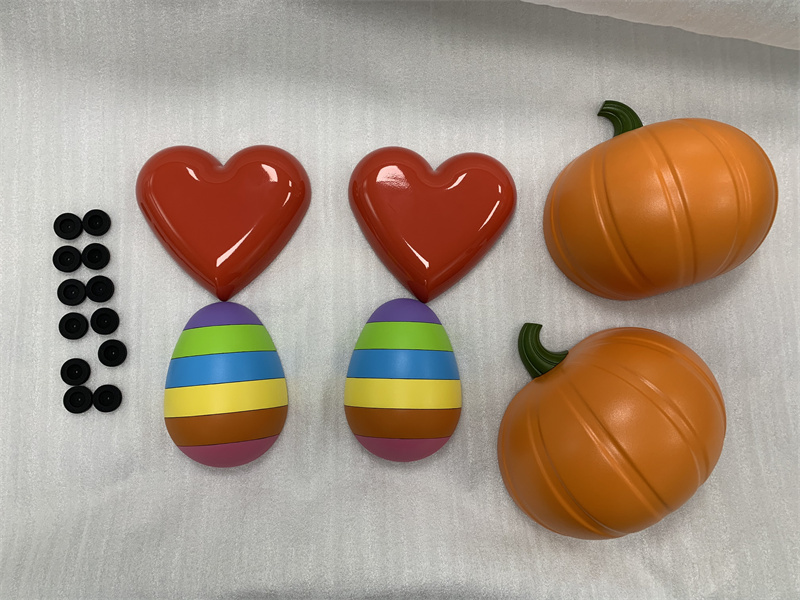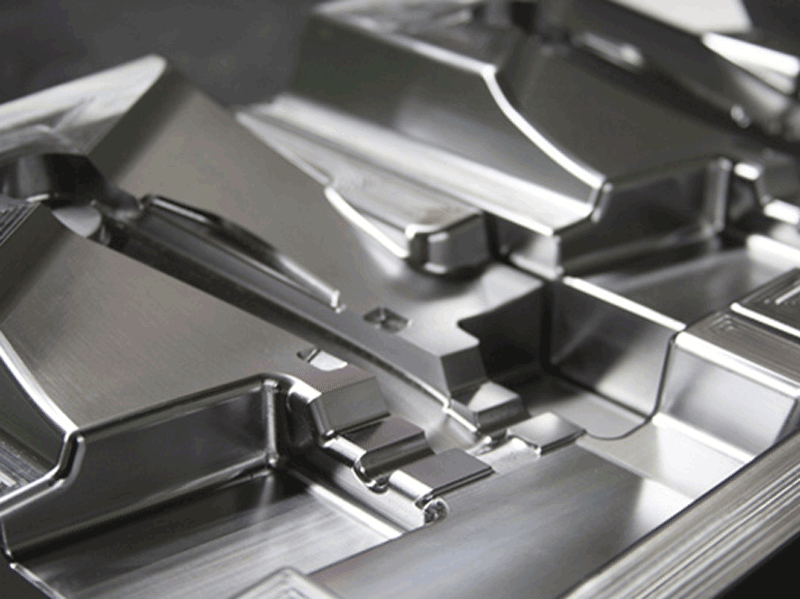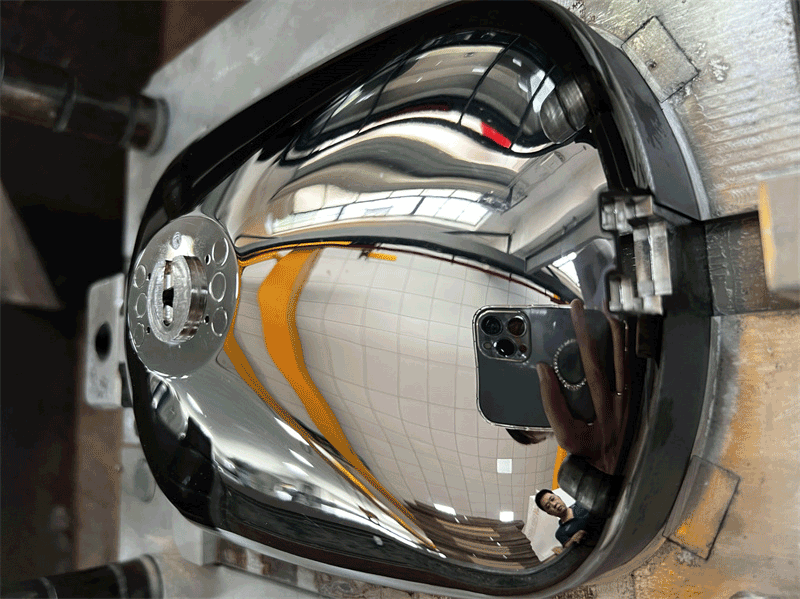Jump to Section
Our plastic injection molding process produces custom prototypes and end-use production parts with fast lead . We use soft tooling that offer cost-efficient tooling and accelerated manufacturing cycles, and stock about 100 different thermoplastic resins.
Common applications for plastic injection molding:
- low-volume production
- pilot runs
- functional testing and prototyping
Plastic Molding Capabilities
Our basic guidelines for plastic injection molding include important design considerations to help improve part mold ability, enhance cosmetic appearance, and reduce overall production time.
Within a few hours after we receive 3D CAD models, we'll send you design for manufacturability (DFM) analysis and real-time pricing .Along with the pricing, our quote will also call out any difficult to manufacture features based on the manufacturing process you have selected. This can range from difficult to mold undercuts to deep holes on machined parts.
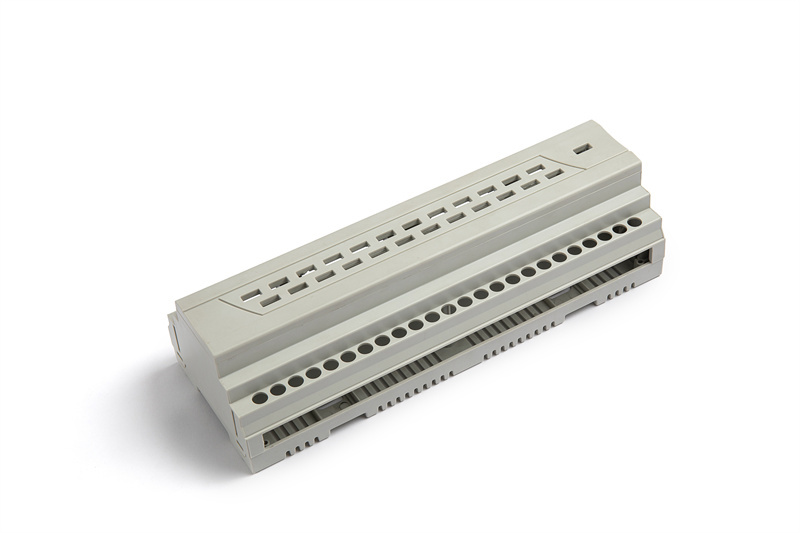
Thermoplastic Materials
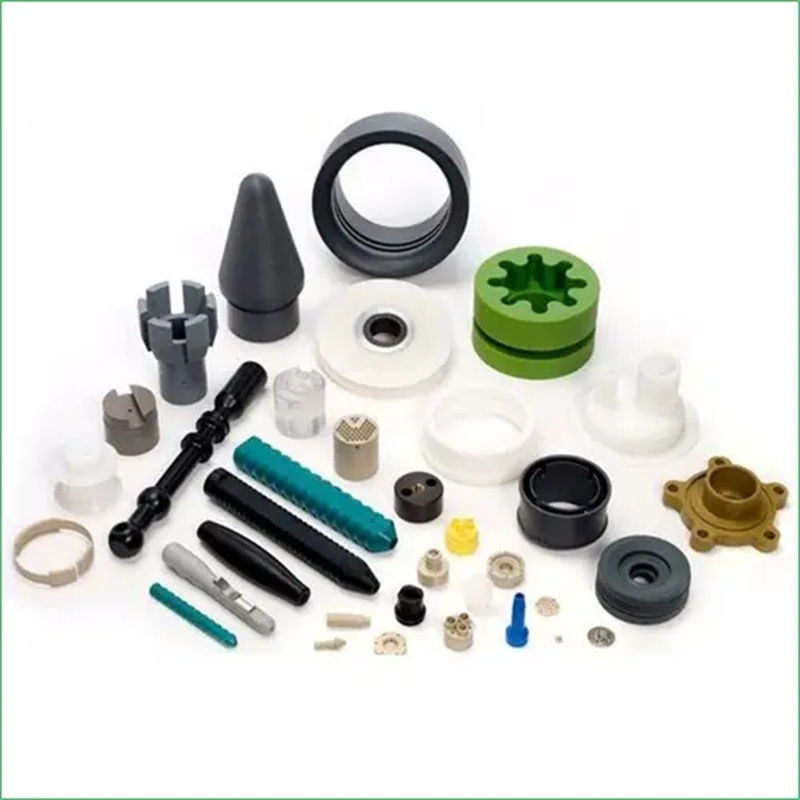
We have wide selection of more than 100 thermoplastic materials. And if you're looking for alternative material options, check out our below material for ABS, PC, PP, and other commonly molded plastics.
ABS
Acrylonitrile Butadiene Styrene (ABS) is a thermoplastic that is created using emulsion.With its Strong, flexible, low mold shrinkage (tight tolerances), chemical resistance, electroplating capability, naturally opaque, low/medium cost.
Common applications:Automotive (consoles, panels, trim, vents), boxes, gauges, housings and toys.
TPV(Thermoplastic Vulcanizates)
TPV is part of the TPE material family. It has the closest in properties to EPDM rubber and has high-temperature resistance and excellent elastisity.
Common applications: Automotive applications, household appliances, sealing applications
PEI(ULTEM)
PEI is a amber color plastic with high temperature resistance and very high dielectric strength, making it great for medical instrument components and electrical insulation parts.
Common applications: Electrical components (connectors, boards, switches), covers, Medical instrument components
Glass-filled Polycarbonate is a strong and tough material ideal for many industrial applications.
Common applications: Pulleys, medical devices
PMMA(Acrylic)
PMMA is a transparent polymer with good tensile, scratch resistant, can be transparent and optical clarity in low/medium cost
Common applications:display stands, knobs, lenses, light housings, panels, reflectors, signs, shelves, trays
PP++ Glass-Filled
Glass Filled PP Compound is manufactured by compounding Polypropylene Homo-Polymer with fine grade of Glass, with suitable grade of processing Aid, Heat stabilizer and Anti-oxidant.
Common applications: housings handles, enclosures
HDPE(Polyethylene - High Density)
HDPE is tough and stiff with excellent chemical resistance, high tensile strength, high impact resistance and a high melting point.
Common applications: Chair seats, housings, covers, containers and caps
LDPE(Polyethylene - Low Density)
LDPE is a soft, flexible, tough, and lightweight plastic with good corrosion resistance in natural waxy appearance and low cost
Common applications: Containers, bags, tubing, kitchenware, housings, covers
ASA(Acrylonitrile Styrene Acrylate)
ASA is an ABS alternative with improved weather resistance.
Common applications: Automotive parts Enclosures, large panels
HIPS(High Impact Polystyrene)
HIPS is easy to mold, recycle, and has high impact strength and stiffness.
Common applications: Packing, dishware, displays
GPPS(Polystyrene - General purpose)
GPPS is brittle, transparent but in low cost.
Common applications: Cosmetics packaging, pens
PPO(Polyphenylene Oxide)
PPO has great dimensional stability and good electrical properties with low water absorption and high cost
Common applications: Automotive (housings, panels), electrical components, housings, plumbing components
PET(Polyethylene terephthalate)
PET is the most common material for plastic bottles of water and other drinks. It is also commonly known as polyester and is used to make synthetic fibers.
Common applications: Plastic water bottles, packaging
PBT(Polybutylene Terephthalate)
PBT is similar to PET plastic and a member of the polyester family. PBT is better suited to lower molding and use temperatures. It has high heat and chemical resistance.
Common applications: Automotive (filters, handles, pumps), bearings, cams, electrical components (connectors, sensors), gears, housings, rollers, switches
PPA(Polyphthalamide)
PPA is comparable to nylon with higher stiffness, strength, and thermal properties. It has good creep resistance and dimensional stability.
Common applications: Automotive, oil and gas, plumbing components
PE(Polyethylene)
PE has a low melting point, high ductility, high impact strength, and low friction.
Common applications: Films, bags, electronic insulation, toys.
PP(Polypropylene)
PP is in lightweight with heat resistance, high chemical resistance, scratch resistance and natural waxy appearance that is tough and stiff in low cost.
Common applications: Automotive (bumpers, covers, trim), bottles, caps, crates, handles, housings
PC/ABS
PC/ABS is a blend of polycarbonate and ABS that is to get the best properties of both base materials—heat resistance and flexibility. This blend is also more easily processed during injection molding than either of the base materials.
Common applications: Enclosures, large panels;
PBT+Glass Filled
Glass-filled PBT is much stiffer and has greater tensile strength than standard PBT. It also has high heat and chemical resistance.
Common applications: automotive applications, Fire-retardant applications
PC(Polycarbonate)
PC is very tough with temperature resistance and dimensional stability, can be made transparent but in high cost.
Common applications:Automotive (panels, lenses, consoles), bottles, containers, housings, light covers, reflectors, safety helmets and shields
PVC(Polyvinyl Chloride)
PVC has high hardness, mechanical and electrical insulation properties. It is chemically resistant to many liquids.
Common applications: Medical containers, construction components, piping, cables
PEEK(Polyetheretherketone)
PEEK has high temperature, chemical, and radiation resistance with low moisture absorption.
Common applications:Aircraft components, electrical connectors, pump impellers, seals
PPS(Polyphenylene Sulfide)
PPS has a very high strength and heat resistance with good flow and dimensional stability.
Common applications: fuel system components, guides, switches, electrical insulation, membranes, packaging
SAN (Styrene Acrylonitrile)
SAN(AS ) is the Polystyrene alternative with higher thermal and chemical resistance and is hydrolytically stable.
Common applications: Housewares, knobs, syringes
TPE(Thermoplastic Elastomer)
TPE has the look and feel of a rubber-like material but is a thermoplastic that can be re-melted. TPE has good thermal properties and stability at a wide range of temperatures that can be made in different hardness.
Common applications: Automotive applications, household appliances
TPU(Thermoplastic polyurethane)
TPU is is an elastic material with good resistance to oil, grease, and abrasion.
Common applications: Medical device applications, mobile electronic devices
Acetal/POM (Delrin)
POM is a low-friction, lightweight thermoplastic that is strong and rigid with excellent fatigue resistance, excellent creep resistance, chemical resistance and moisture resistance in naturally opaque white with low/medium cost.
Common applications: Bearings, cams, gears, handles, rollers, rotors, slide guides, valves
Nylon - Glass Filled & 6/6
Nylon 6/6 has high mechanical strength and rigidity with fatigue resistance, chemical resistance in low creep and low friction with medium/high cost
Common applications: handles, levers, small housings, zip ties&gears, bushings
Nylon - Glass Filled is much stiffer and has better tensile strength than standard Nylon. It also has a low coefficient of friction and high thermal resistance.
Common applications: Bearings, washers, a lightweight substitute for metals where appropriate
Surface Finish Options
Draft angle requirements will vary by requested finish. At Xiamen Ruicheng ,Industry standard SPI and VDI classification systems finishes are available.
| Glossy | Semi-Glossy | Matte | Textured |
| SPI-A1 | SPI-B1 | SPI-C1 | SPI-D1 |
| SPI-A2 | SPI-B2 | SPI-C2 | SPI-D2 |
| SPI-A3 | SPI-B3 | SPI-C3 | SPI-D3 |
Secondary Operations After Injection Molding
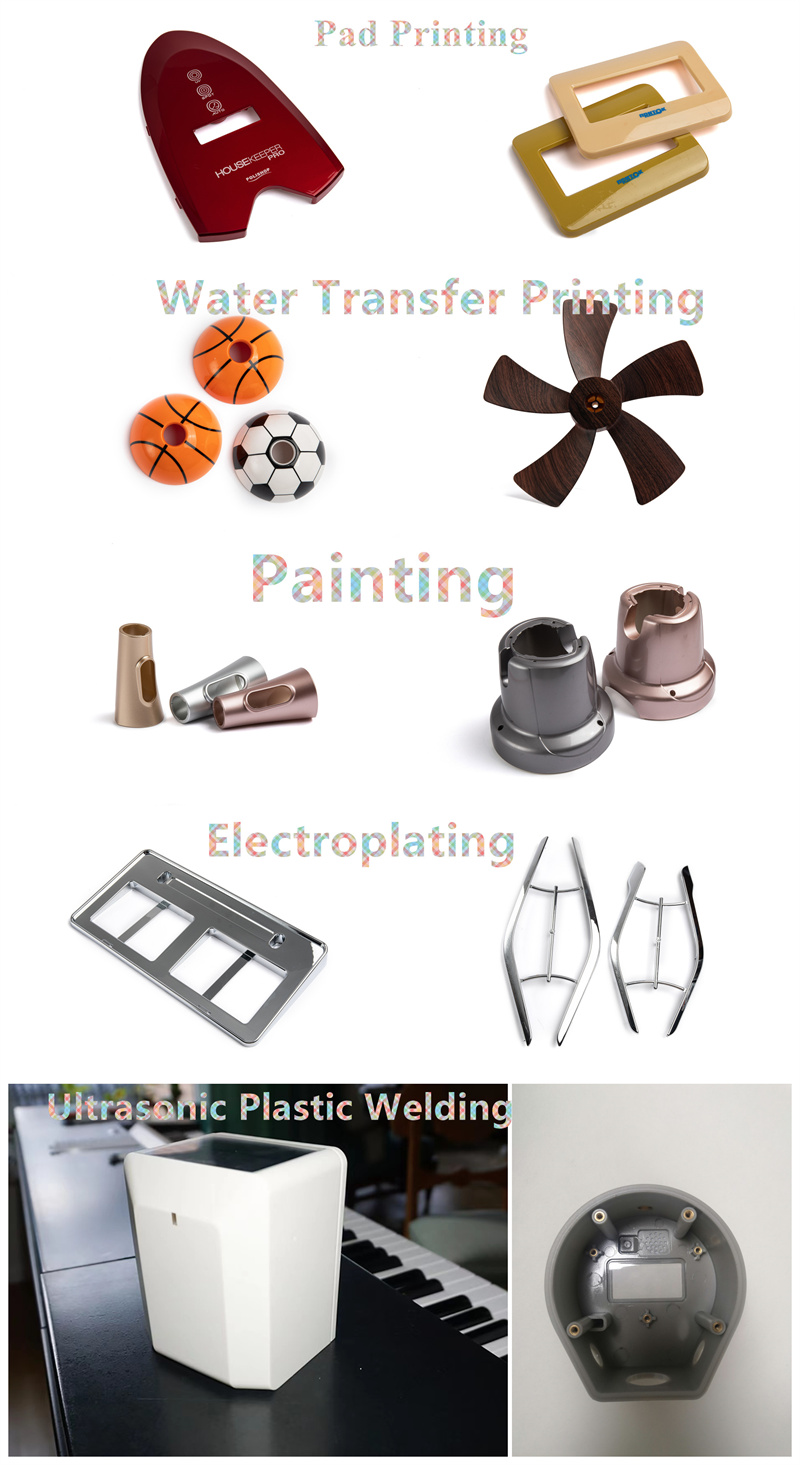
Heat Staking
The process of locally heating a plastic component in order to reform and insert another component (such as a threaded insert).
Laser Engraving
Engraving text or a design with the use of a laser.
Pad Printing
Pad printing is a printing process that can transfer a 2D image/logo/text onto a 3D surface.
Painting
Primer and top coat; standard colors or Pantone or RAL color matching; masking available; EMI (copper) paint. Glossy ,Matte and Smooth Texture are all available to be applied on
Electroplating
It is a process for producing a metal coating on a solid substrate through the reduction of cations of that metal by means of a direct electric current.
Ultrasonic Plastic Welding
A high frequency welder generates heat to join or reform thermoplastics.
Why Choose Us for Plastic Injection Molding Service
Xiamen Ruicheng provides advanced injection molding services, with solutions covering material verification, tool design, prototyping & production, finishing, and quality assurance. Our team of experts is committed to delivering professional technical support. With precise prototypes and production parts, Xiamen Ruicheng helps you reach your manufacturing goals.
Our Injection Molding Processes
Xiamen Ruicheng’s injection molding process includes detailed design analysis and expert mold tooling production. Take advantage of the careful design and manufacture of injection mold tools for your custom plastic parts. We will work with you to review the T1 sample before we begin low-volume production. Each production ends with strict inspection and quality control to ensure your parts meet international standards.

Request Instant Quote
Our online quote platform can help you get an instant quote upon request so that our engineers can deliver the quote within 24 hours to get production started.

DFM Report
Our design for manufacturing review enables us to find any defects or concerns beforehand and provide recommendations for a more feasible design.

Mold Flow Analysis
Using predictive modeling software allows us to see how the molten material will behave when it enters the mold, allowing for further improvements to the design.

Mold Tooling Production
We apply high-quality CNC machining to help construct the injection mold, making sure the mold is ready to be used.

T1 Sample Inspection
T1 sampling will be delivered for you to review prior to manufacturing plastic parts to ensure precision and quality.

Low Volume Production
After the trial production phase, we begin batch production to manufacture parts at fast rates to save on time and costs.

Strict Inspection
We follow international tolerance standards to ensure our parts meet your parameters

Delivery
We partner with logistics companies to schedule a timely delivery to your region.
Injection Molding from Prototyping to Production
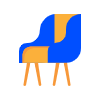
Soft Tooling
Get easy design feedback and validation through superior quality Soft tooling. Create small batches of plastic molded parts with excellent injection molding prototypes. We excel at manufacturing prototype molds within days to ensure you perform functional tests and validate market interest. (Soft Tooling Typical Quantities <2,000)

Production Hard Tooling
We create high-quality production hard molds for high-volume plastic parts production. With high-strength, durable tool steel material, our production tooling is suitable for producing hundreds of thousands of parts. We can vary materials and construction methods according to your unique requirements.
Advantages of Injection Molding
Injection molding is plastic manufacturing process that can produce high quality parts at scale. It's typically used for low- to high-volume production but our aluminum tooling can also make prototyping runs economical.
✔ Low cost at higher volumes
✔ Exceptional part cosmetics and surface finish
✔ Repeatable
✔ Complex parts
✔ Low scrap rate
✔ Large selection of thermoplastic and thermoset materials
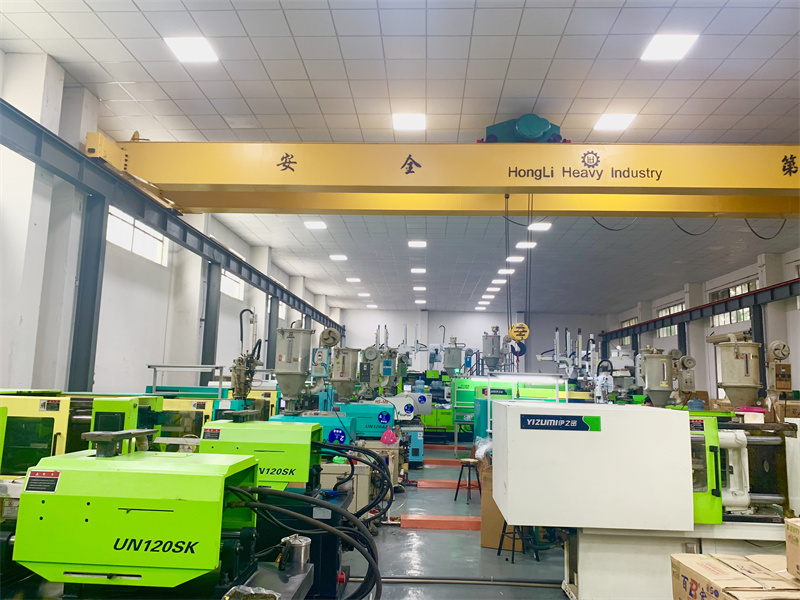
Injection Molding Applications
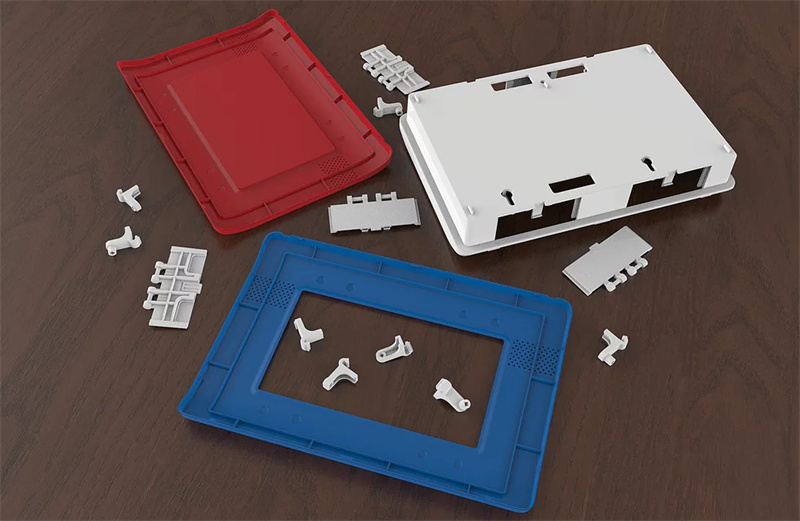
Injection molding is widely used for plastic part production in medical, consumer, and automotive industries. Typical parts include:
✔ Housings
✔ Brackets
✔ Gears
✔ Single-use medical parts
✔ Electrical connectors
✔ Syringes
✔ Containers
Additional Links and Resources
Injection moulding surface finish design guide – DFM
Injection moulding surface finish as per SPI and VDI classification systems – Gloss, semi-gloss, matte and textured surface finish. Contents covered in this article What are Injection moulding surface finishes? Why use surface finishes in injection moulding? Injection ...
Do Plastic Injection Molds Wear Out or Have a Limited Production Life?
Plastic injection molds can wear out due to friction or repeated contact between parts over thousands of cycles. Wear primarily affects gates, slides, ejectors and other moving elements within the mold. When components slide or touch a...
Selecting Materials for Your Custom Plastic Injection Mold
Since there is a wide variety of material options for custom plastic molding, it is most helpful for product engineers to focus on the primary function and working environment of their parts. This allows a narrowing down of the right material for your custom injection mo...


